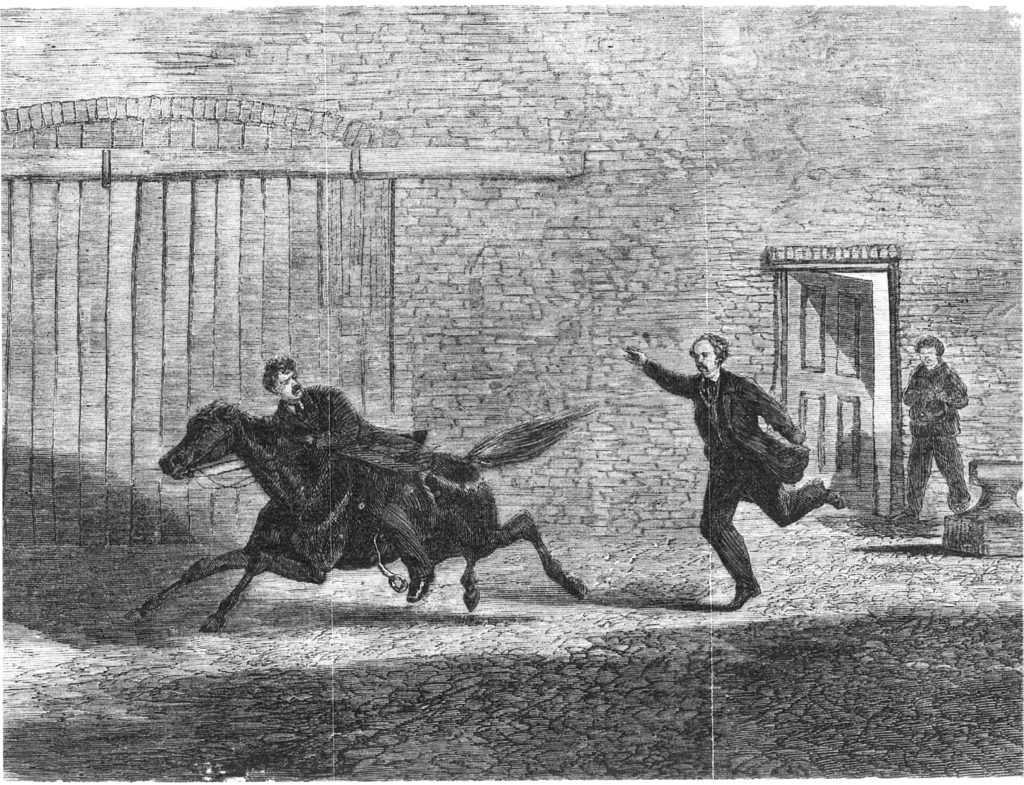The mob violence we witnessed at the Capitol this week stunned Americans across the United States. But for Washingtonians, the riots took place, in some cases quite literally, just down the street.
At the DC History Center, we’ve been reminded how frequently Washingtonians are eyewitnesses to devastating events that shake the nation. The storming of the Capitol comes at a moment when, as a nation, we are collectively struggling to agree on basic facts, such as the outcome of a presidential election.
Our role in bearing witness—seeing the difference between peaceful protests and indiscriminate violence, and understanding how differently they were handled and by whom—seems especially critical, particularly when it comes to the historical record.
To draw from another era of bitter division and anger, we know that during the Civil War, in 1864, a 10-year-old named Henry Davis and his brother lived on Ninth Street NW. An alley that ended at Ford’s Theatre on Seventh Street lay just behind their house. The night Abraham Lincoln was assassinated, Henry was peacefully asleep, but his brother peered out the window and witnessed assassin John Wilkes Booth struggle onto a waiting horse behind the theater and race away down the alley.

We know this because our organization captured Henry’s story (see page 242) in the Records of the Columbia Historical Society, the predecessor to our Washington History magazine.
In some ways, this story is just an endearing anecdote, a recollection from a time gone by. But its sheer humanity—a brief incident in a young boy’s life—gently opens a door to understanding momentous change and our city’s role in shaping it. What did the boy think when he understood what he had seen? Did it stay with him for the rest of his life? And how did it influence him later on as a citizen and member of his community?
Now, in 2021, we ask you to share your story as part of our In Real Time initiative. How has this riot and its immediate ripple effects touched your life? And what does it mean to you? Will it change you?
As DC’s memory bank, we are privileged to record what we have seen, and to interpret what we have seen before. Our work starts with the lived experience of Washingtonians, so let us hear from you.
—Laura Brower Hagood is Executive Director of the DC History Center